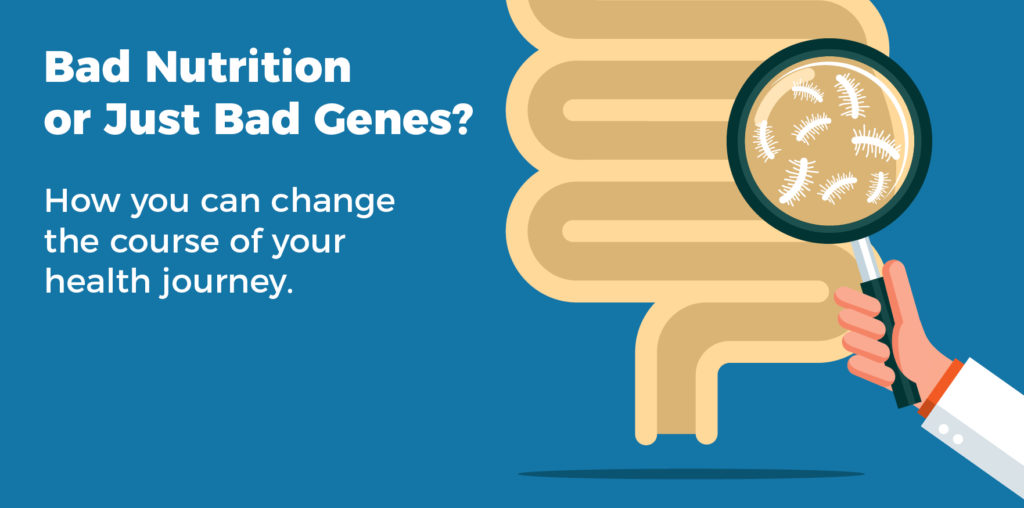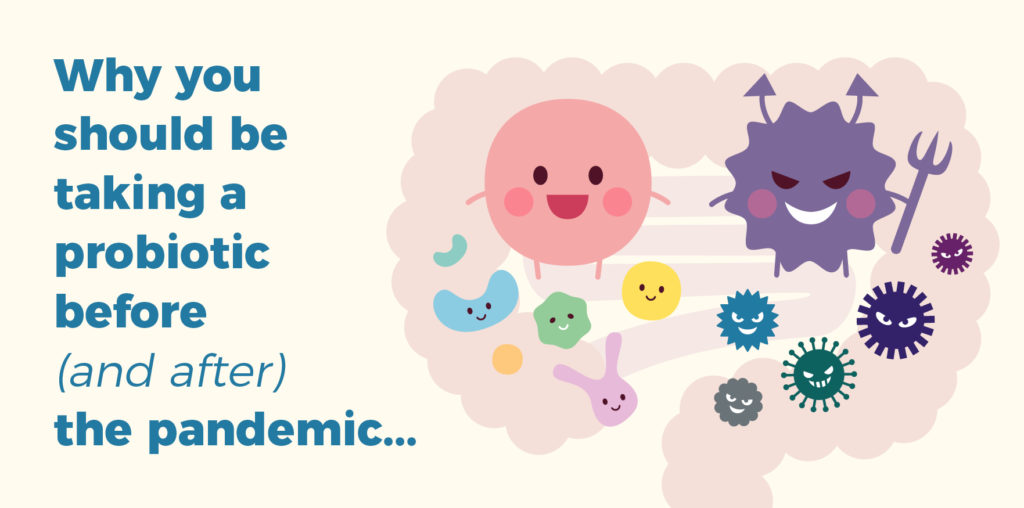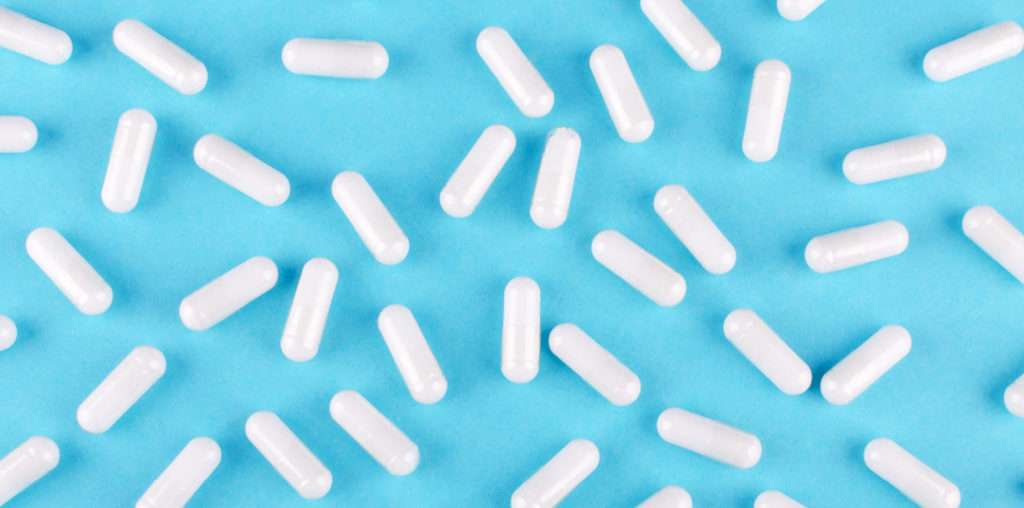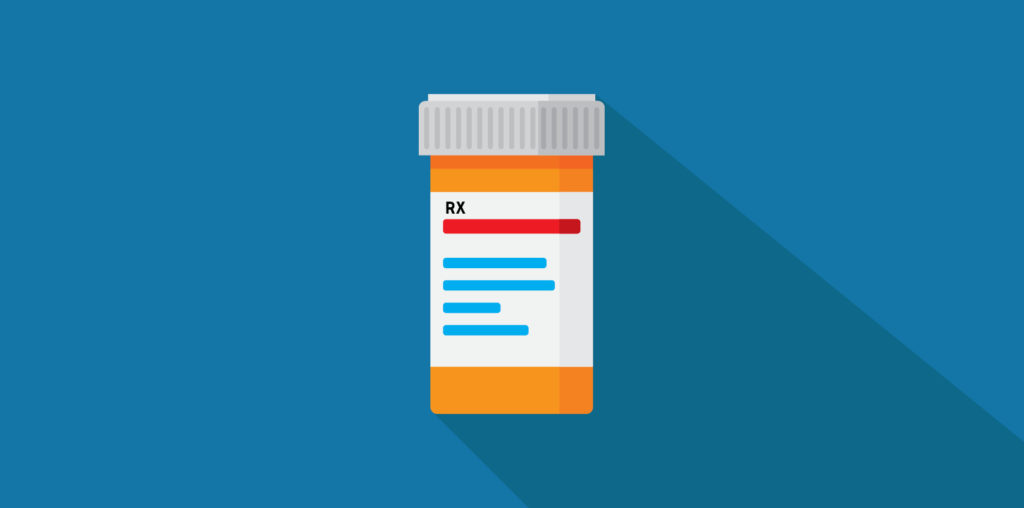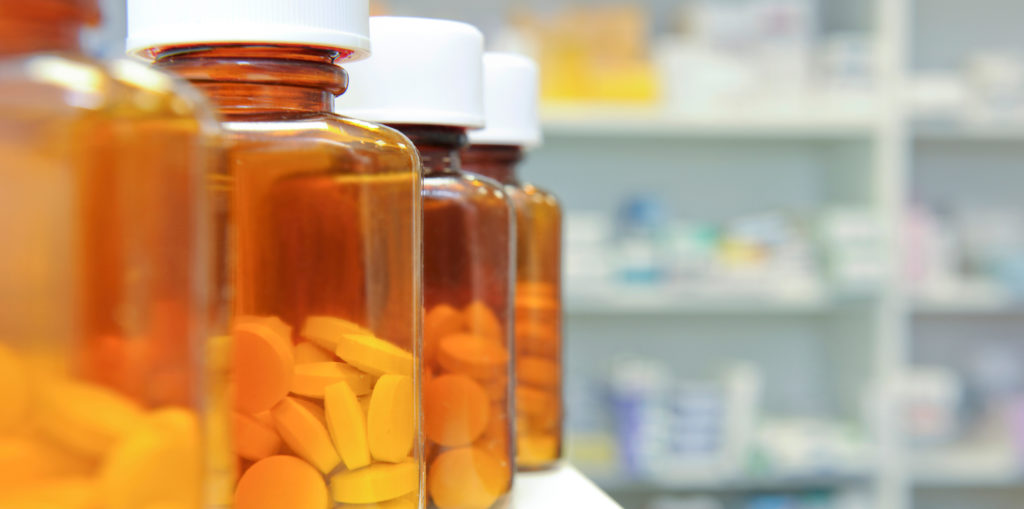The Gut or Your Genes: What Affects Your Health More?
We’re pretty sure you’ve heard the same old phrase, You are what you eat! way too many times to count.
Nevertheless, there’s a certain amount of logic to this saying, given that eating poorly has been proven to kill you faster than smoking or even a serious car accident!
Plus, the three leading causes of deaths associated with inadequate diets — cardiovascular disease, cancer and type 2 diabetes — can be largely preventable with the right amount of attention to your health.
There’s no question the quality and kinds of foods you eat also affects the healthy balance of bacteria in your gut very directly… but just how much?
Would you think twice about eating a nutrient-dense diet more often and processed foods a little less often if you knew doing so had a more powerful effect on your overall health than your genes?
Nutrition matters
The foundation upon which this international study of nearly 1,100 patients conducted in the U.S. and Europe was built is one we’ve talked about for a long time.
The quality of the diet you eat every day directly affects your gut, leaving you more or less vulnerable to health problems.
Patients who ate a diverse diet full of minimally-processed, nutrient-rich foods had healthy microbiomes, while those consuming unhealthier diets chock full of processed foods, juices, and refined grains had microbiomes full of harmful bacteria.
That’s not new.
What is new: Scientists identified specific bacterial strains associated with affecting a patient’s risks of health problems like heart disease, obesity, and heart disease, both good and bad.
For example, the presence of the species Blastocytis was associated with maintaining healthy blood sugar levels after meals, certainly a good thing.
What’s more, scientists linked these bacteria to specific food groups, nutrients, and diets, which explains why they concluded that what you eat may have a more significant impact on the gut and your health than your genes.
“Given the highly personalized composition of each individuals’ microbiome, our research suggests that we may be able to modify our gut microbiome to optimize our health by choosing the best foods for our unique biology,” says Dr. Sarah Berry of King’s College London.
In fact, some of these microbiome-based biomarkers for cardiovascular disease, impaired glucose intolerance, and obesity identified by scientists are also key risk factors for the coronavirus.
Protect the health of your gut
The important lesson — taking ownership by eating more nutritious meals consistently and cutting back on highly processed foods for the health of your gut — appears much more evident now than ever.
Your genes may not have the influence experts once assumed, but that’s an empowering thing. Now, you’re in the driver’s seat to make the changes you need, starting with protecting and improving the healthy balance of bacteria in your gut.
In addition to eating more nutritious meals made of whole foods, a probiotic, ideally formulated with multiple strains of beneficial bacteria, can be a great, natural tool to help you re-establish your gut’s healthy balance too.
The ten proven strains of beneficial bacteria in EndoMune Advanced Probiotic can make a huge difference in balancing your gut microbiome and help you protect your health naturally.
Resources
The Gut or Your Genes: What Affects Your Health More? Read More »

